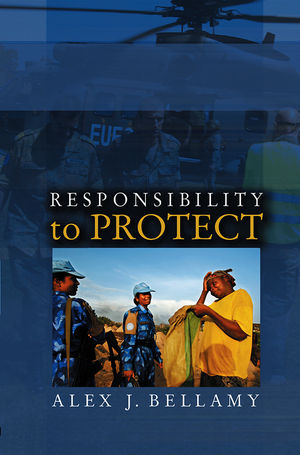Responsibility to ProtectISBN: 978-0-7456-4348-9
Paperback
268 pages
January 2009, Polity
 This is a Print-on-Demand title. It will be printed specifically to fill your order. Please allow an additional 10-15 days delivery time. The book is not returnable.
Other Available Formats: Hardcover
|
||||||
Journal of Intervention and Statebuilding
"Its clear and accessible style, as well as its meticulous discussion of the R2P's historical and political context, is well integrated into an analysis of the practical side of genocide prevention and peacekeeping."
Times Higher Education
"A fast-paced and illuminating account of international policy formation. In the literature of humanitarian history, Bellamy's account of the development of R2P is thus a worthy stable mate to Geoffrey Best's classic account of the development of international humanitarian law after 1945."
International Affairs
"Responsibility to Protect is an important and accessible treatment of one of the key recent political shifts in the contemporary internaional system, and as such should find a place on the bookshelf of anyone interested in the manner in which international relations is prosecuted in the new millenium."
Political Studies Review
"A clear, in-depth and analytical overview of the theoretical and practical dimensions of the R2P concept and norm in international relations. This book comes highly recommended."
Central European Journal of International and Security Studies
"Lucid, thoughtful, and eminently sensible, Alex Bellamy's Responsibility to Protect: The Global Effort to End Mass Atrocities should be must reading for scholars, commentators, and practitioners alike. He chronicles both the evolution of the principle and the struggles to put it into practice with a rare combination of rigorous scholarship, sophisticated analysis, and engaging prose."
Edward Luck, Columbia University
"Alex Bellamy's is a thoughtful and critical tale of efforts to remove the license to kill from the sovereign attributes of states. A Responsibility to Protect also explains brilliantly the politics of why necessary normative advances have, to date, not ended mass atrocity crimes."
Thomas G. Weiss, City University of New York



